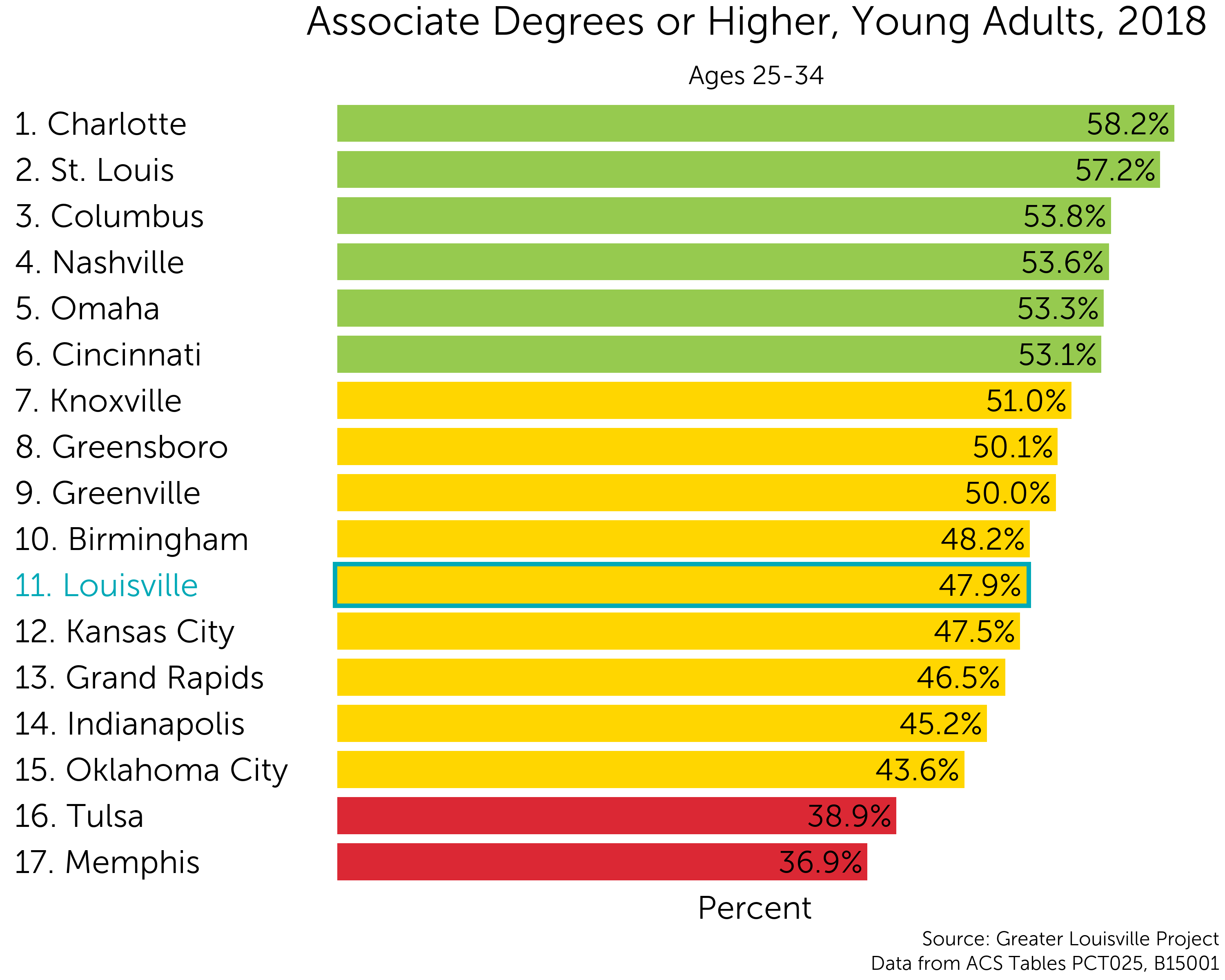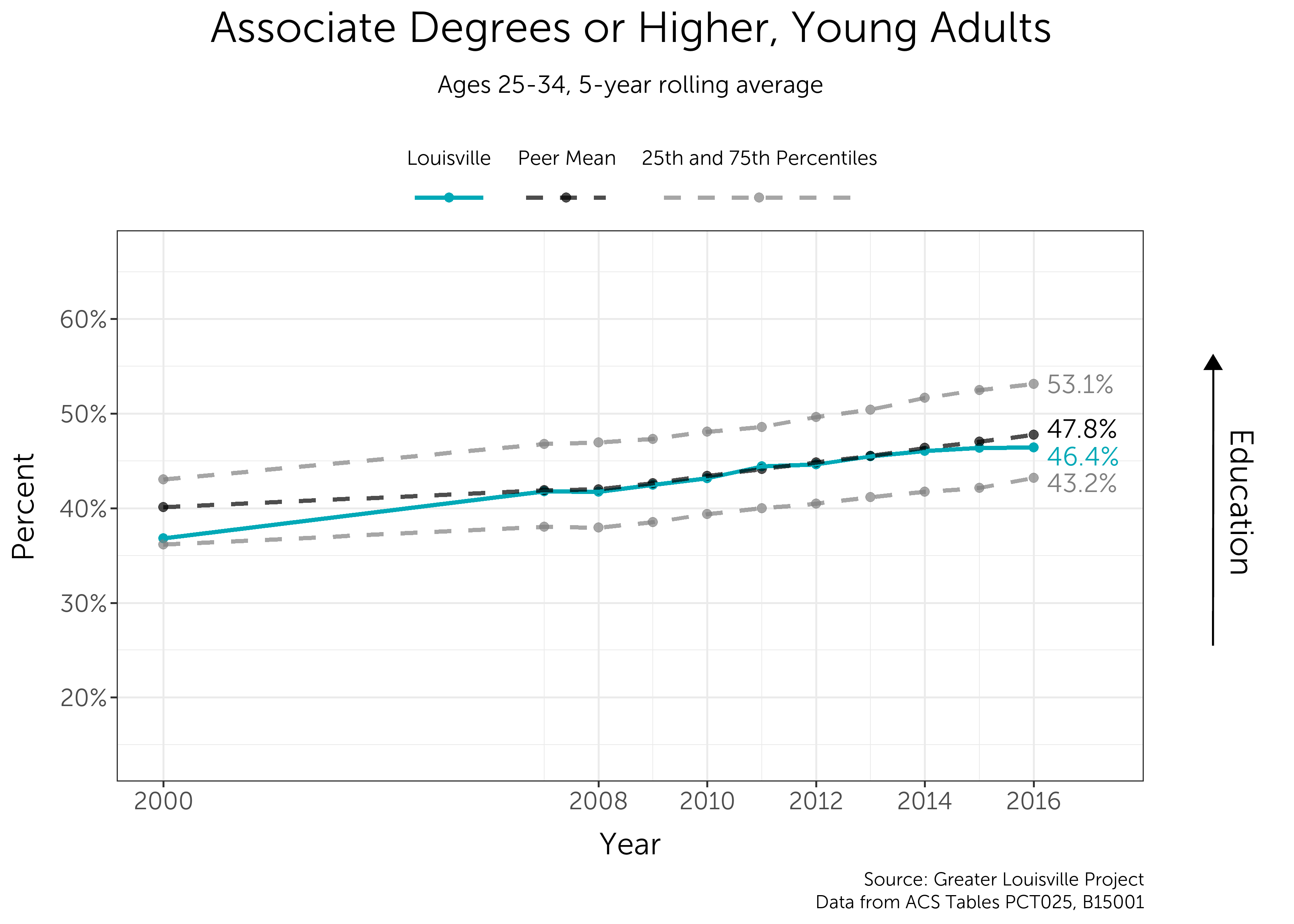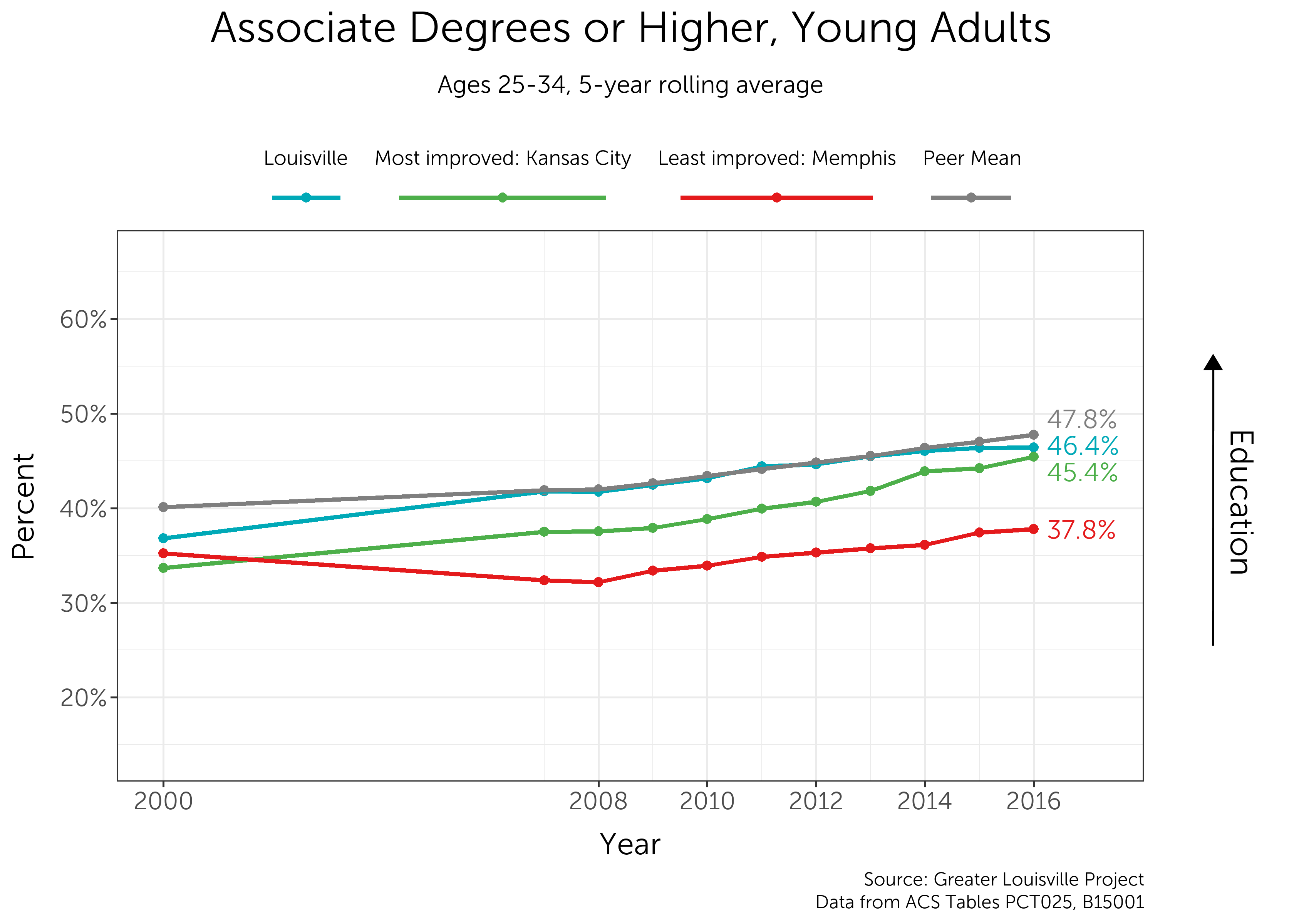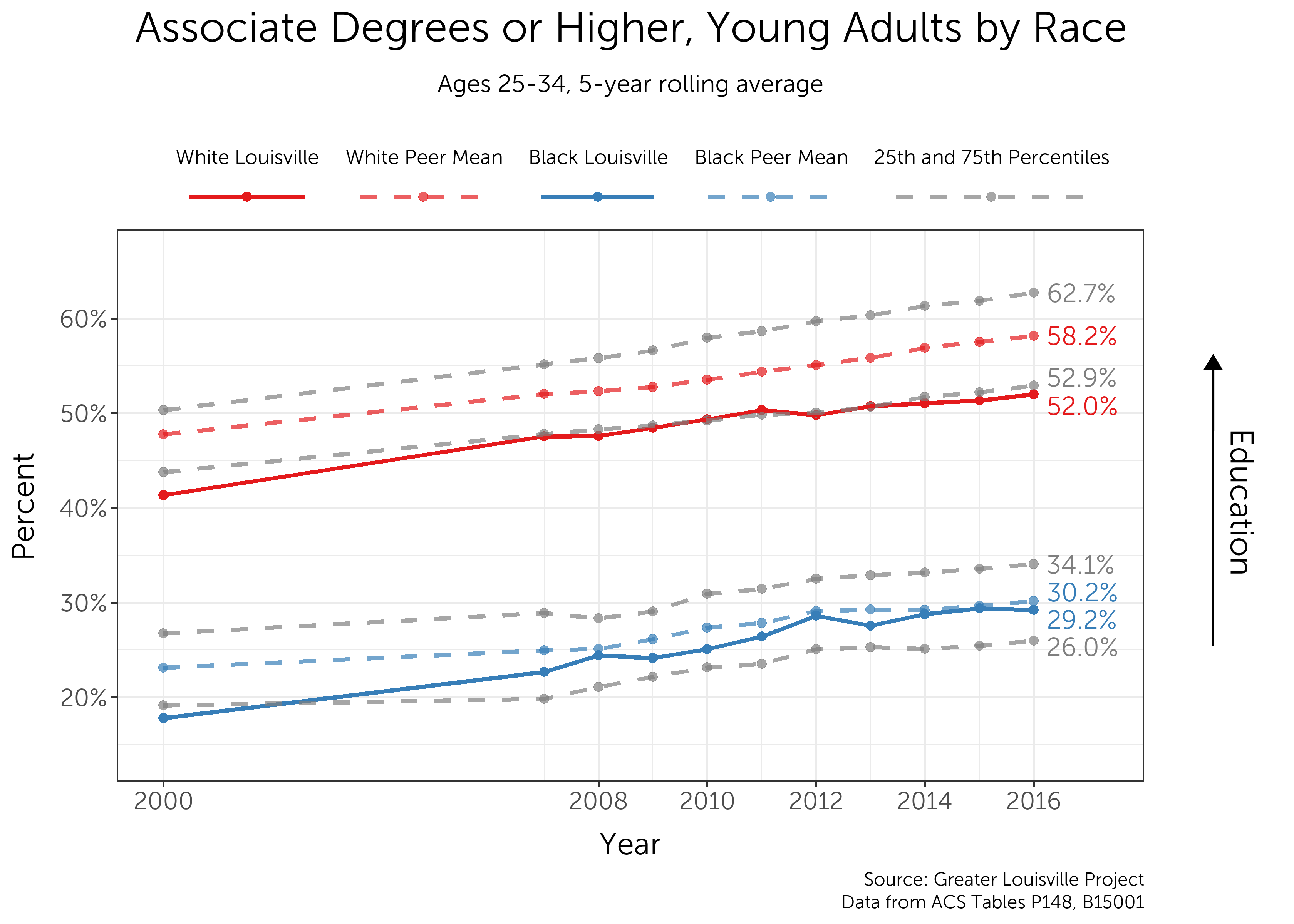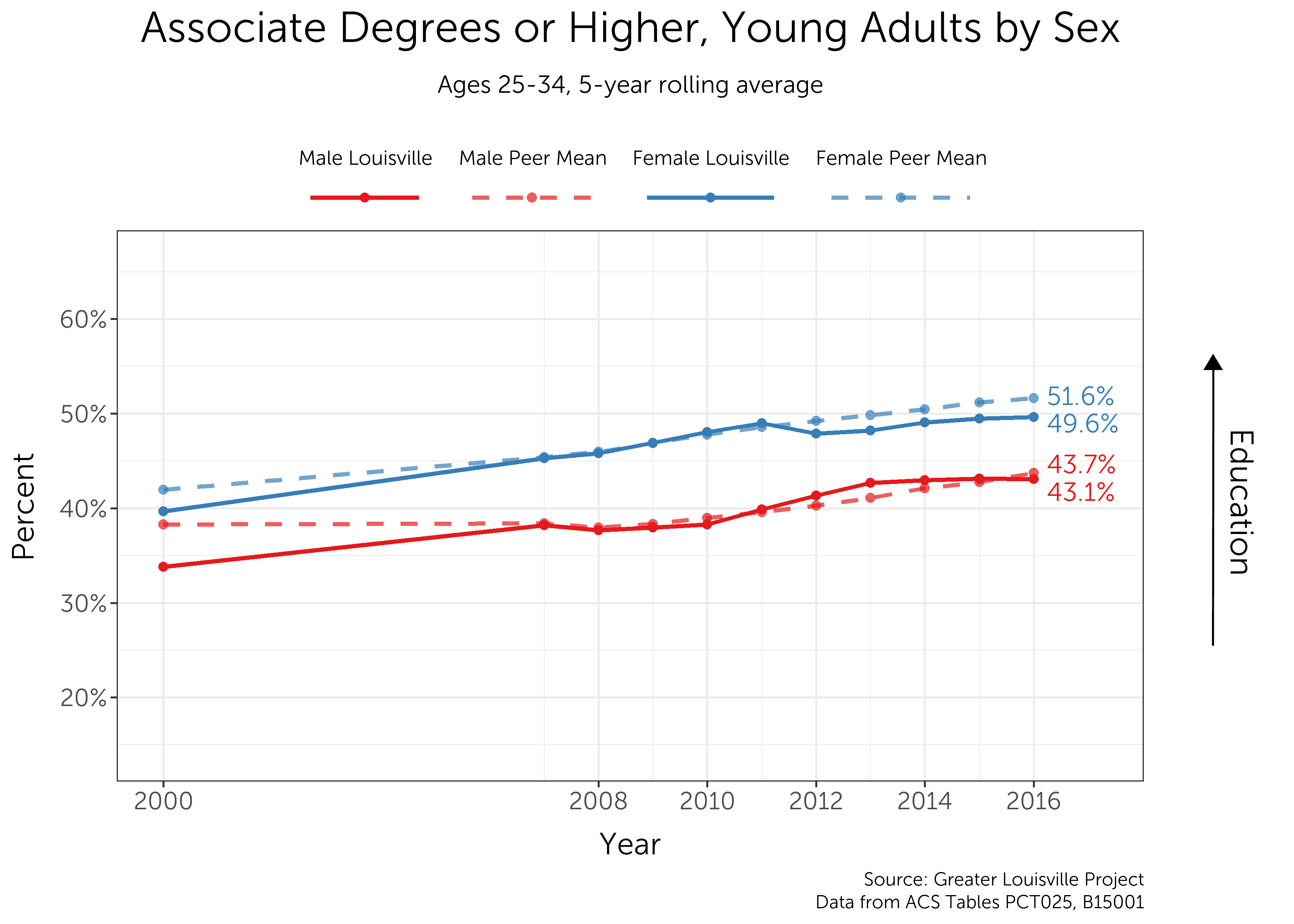Associate Degree or Higher, Ages 25-34
The educational attainment of young adults in Louisville lays the groundwork for the academic outcomes of future generations. An educated workforce is also important to establishing 21st-century jobs to make Louisville competitive in the modern economy. College attainment among young adults is an important indicator of the effectiveness of Louisville’s educational system and its ability to attract educated workers from other cities.

